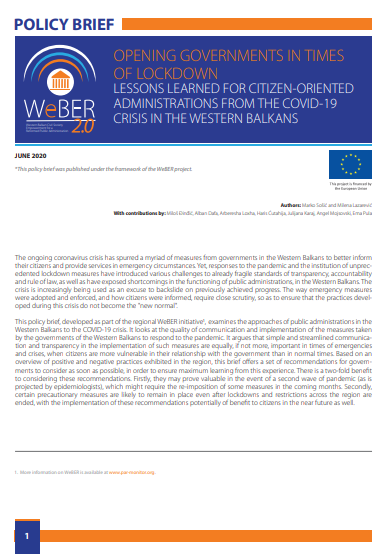Ticking the box on public consultations: Enablers, repercussions, solutions?
A transparent approach to consultation processes, inclusive of civil society and open to the public, is essential to ensure the integrity, quality, and legitimacy of decision-making. The effectiveness and genuineness of such processes are integrally bound to the transparency provided by the institutions in charge of the decision-making.
To enable public scrutiny, access to public consultation processes must be ensured by the government, from the initial phases of law-making and policy-making, before the draft documents reach the Parliament. The Council of Ministers (hereinafter ‘’the CoM’’) is a key actor in such processes since it submits an average of 80–85% of all the draft laws that are reviewed by the Parliament every year. Therefore, this policy brief will address public consultation processes at the central government level with the aim to expose factors that enable their circumvention. It argues that to conduct successful and meaningful public consultations processes, the shortcomings in the legal framework and institutional practice that enable the circumvention, need to be addressed. Lastly, it provides policy recommendations that aim to eliminate the identified legal gaps and improve proactive transparency.
Find the Policy Brief here (in English) and here (in Albanian).
WeBER2.0_Reci-Angjeli_Ticking-the-box-for-public-consultations_brief_IDM_12.2021_final-1-1


